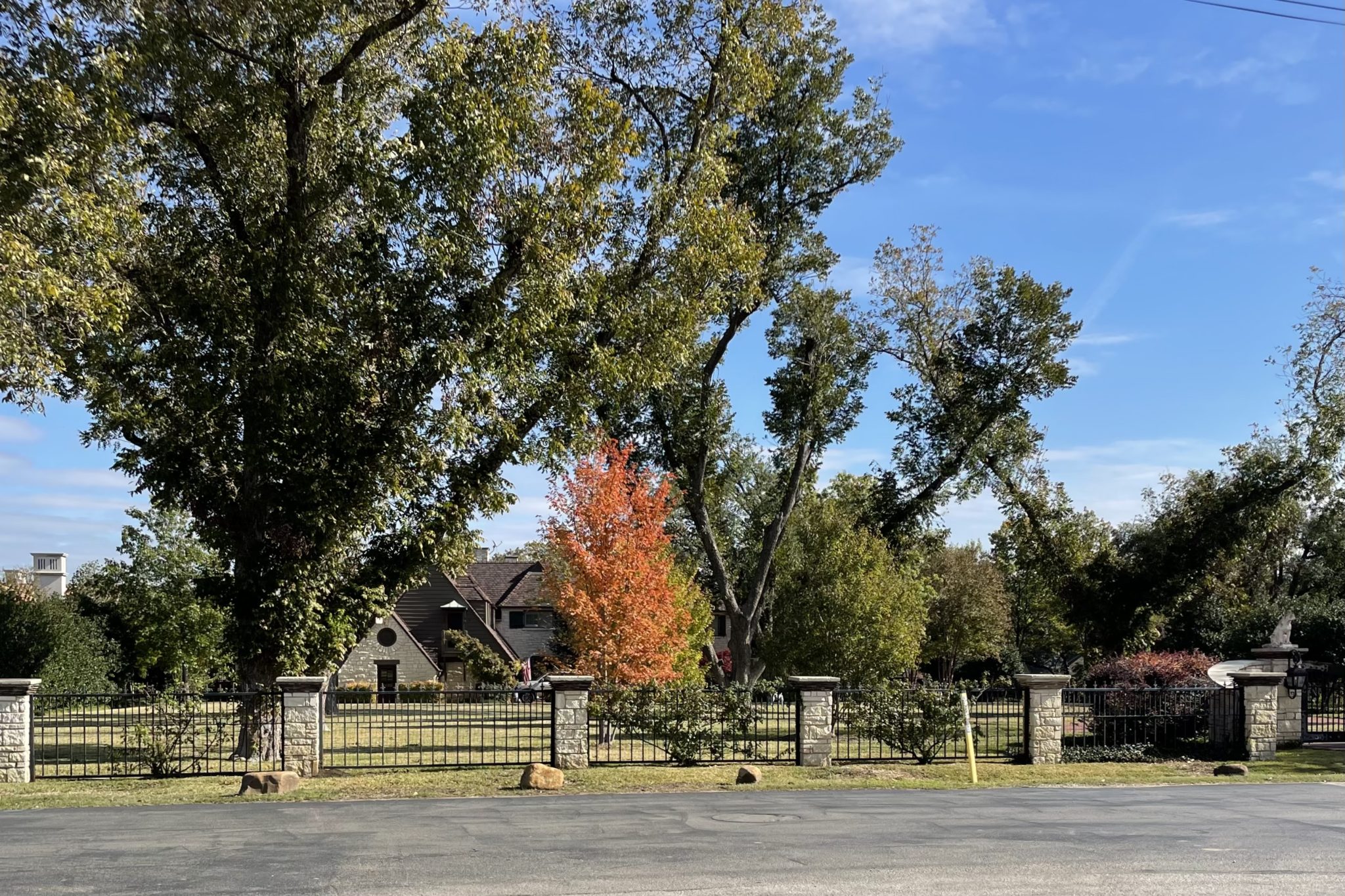
Jackson Residence on Strait Lane. Photo by Renee Umsted.
The Dallas City Council voted to grant a historic overlay for the Jackson Residence on Strait Lane.
The French Eclectic house, designed by Hal O. Yoakum, was built in 1939 for the Jackson family. Now one of the last historical houses left on Strait Lane, it is an example of the American Country House movement.
Thomas Jackson was a member of the Dallas Chamber of Commerce and the State Fair of Texas boards.
The Landmark Commission approved the landmark designation in April and said the property, located at 10260 Strait Lane, meets seven of the 10 criteria for the designation. This was followed by unanimous approval at the City Plan Commission in October.
David Preziosi, the former director of Preservation Dallas, spoke at the Nov. 9 council meeting.
“This is an incredible gift that the property owner, Beverly Ray, is willing to make to the city of Dallas by landmarking the house,” Preziosi said. “I’m so pleased that she is willing to protect her house in perpetuity so that it will stand for generations to come.”
He said he started working with the property owner a year ago to help preserve the property.
“I very much want it to be declared a landmark so that it will stand for people to see for years to come and enjoy,” Ray said. “It’s a beautiful spot.”
The council voted unanimously to grant the historic overlay.
“District 13 doesn’t come before you very often with historic preservation opportunities, and so I really appreciate Mrs. Ray coming down to City Hall today and for taking the initiative to preserve this great example of an American country house designed by Hal Yoakum,” said District 13 City Council member Gay Donnell Willis.
District 11 City Council member Jaynie Schultz, who lives in Preston Hollow, also spoke in support of the designation.
“In this case, we have a local hero,” Schultz said. “Truly, you are a local hero for taking the step to say, ‘My house isn’t just about what it’s worth in terms of monetary value.’ Its history matters just as much, and more in some cases.”






